Is Eco-Socialism a Viable Option to Global Disaster Capitalism?
By Sutapa Chattopadhyay
Today, our democratically elected governments are grounded in the conviction that markets should be the sole organizing force of political, social, and economic decisions: an ideology that entirely dislodges welfarist, democratic and uncommodified values from the state. Over the last four to five years, for example, ordinary people throughout Europe have protested under the financial crisis but received no recognition from the International Institute for Finance (IIF), a lobby group of the 450 biggest banks in the world. Representatives of IIF include Charles Dallara (who served in the treasury of Ronald Reagan) and Josef Ackerman (chief executive of Deutsche Bank) who were prime players in deciding Greece’s future. Both were present throughout the Euro summits and enjoyed access to policy decisions with European heads of state and other policy makers. The austerity measures that followed their so-called success led to an economic depression in Greece. Unemployment continued to rise, rendering ordinary people destitute and desperate but favoring a small percentage of global capitalist elites. Further, the dismantlement of the welfare state destroyed the notions that individuals can rely on the community in times of need or have rights to resources as public goods, or even have rights to basic needs, or a right to live.
Looking back on colonial times, the forest, for example, became a resource and source of wealth after its use value was discovered following the establishment of regimes of extraction and technologies of rule, and the construction of new knowledge under the name of scientific forestry. Scientific forestry allowed a systematic exploitation of forests by censuring, as wasteful and unsustainable, the practices of the people who had generational rights to the resources. Why? Because resources had to be appropriated for capital accrual.
The economy of extraction is best understood today by analyzing the imperial regimes of rule, technologies of rule, and the western hegemonic construct that all third world resource-rich nations support terrorism. Thus the notion of stewardship can be applied because the more civilized world presumably knows how to improve poor lives. In fact, it is doubtful that there would have been any wars, conquests, or occupations if west Asia had been devoid of oil or if Africa had not been so richly endowed with resources. Improvement of the lives of thousands of Iraqis or, more recently, the liberation of Libya from Gaddafi, echo Mill’s declaration that “despotism is the legitimate mode of government dealing with barbarians, provided the end be their improvement”. Michael Klare argues that the global energy giants puncture holes in the oil fields of West Asia, Africa, Latin America – the so-called third world – because the governments there are compliant, corrupt, easily manipulated and environmental regulations can be effortlessly fiddled. Consequently, if resource conflicts are analyzed under unitary, singular explanations, then the study fails to capture the intricacies of power-knowledge and the politics of extraction and accumulation. The web of power is complex, distributed and functional.
Claudia von Werlhof rightly claims that the colonial South is not becoming the North through any western, masculine and classical development prescriptions; rather the North is transforming into the South. The latest form of development is a world system of underdevelopment, which further establishes that development, underdevelopment and unequal development go in tandem. If the path of over-consumption, exploitation and waste by the west is filtered, what we get is an unequal distribution of resources, benefits and wealth because those who sacrifice for development and those who benefit are not the same.
Genetic mutilations, patent rights, and TRIPS (trade-related aspects of intellectual rights) have reduced access and availability of resources, medicines and food to the poor and to poorer countries. The situation is all the more grim and painful because neglected diseases — simplistically, poor people’s diseases — have no vaccines or treatments because there is supposedly no market. With the expansionist policies of the superpowers who were the former colonial settlers, one sees that colonialization of the south has not stopped with decolonization efforts but has instead been more aggressively installed and violently continued through free-market fundamentalism and globalization. Various writers perceive this phenomenon as settler colonialism or internal colonialism or even a continuation of the cold war. Although globalization has brought us together with enhanced technologies and telecommunication, it has devastated third-world economies and the environment. Environmental destruction has such a domino effect on the entire world that we are already experiencing climate change in the form of appalling tropical storms, floods, droughts and sudden weather fluctuations that bring a huge toll to the livelihood mechanisms and health of poor people. Despite indications that the Earth is warming, the production of abstract wealth, forest clearings, grabbing of wastelands, displacement of subsistence farmlands with plantation crops and biofuels are on rise, and this will probably continue until it annihilates the poor.
Paradoxically, these discussions are not new, nor is the capitalist exploitation of nature and humans. Walter Benjamin was one of the first Marxists to denounce “the notion of dominating nature as an imperialist idea.” Five years after “ecology” appeared as a popular term, Boochin and College explicitly elaborated the anthropogenic sources of massive environmental destruction; thereafter, liberal and Marxist writers parasitized these concepts. The second half of the nineteenth century marked the critical consciousness around capitalism and ecology from Marx’s writings and anarchist politics of struggle and social uprisings. Radical environmental theorists had still not aligned with Marxist theories of class consciousness, articulation of modes of production and the relation between forces of production and social relations of production, but they accused Marx and Engels of being obsessed with capitalist production. This led to many faulty and unjustified analyses, because no one more than Marx condemned the logic of production for the sake of capital accumulation.
Further, there are other illusions, such as those of clean capitalism and the possibility of controlling the excesses of capitalism through eco-taxes, whereby ecologists shy away from correlating environmental crises with issues of class exploitation/exclusion. Consequently they abandon all possibility of joining the reds (social and workers movements) to the greens (environmental movements) for a combined approach to eco-social justice. No eco-social change will be possible until the fundamental ecological problems are recognized as being those of over-consumption and over-accumulation by the bourgeoisie and rich nations, arms trade and militaristic and imperialistic interventions of powerful nations, inegalitarianism, and the transplantation of western essentialist conservation agendas and policies to the south. The resolutions of the COP17 Durban conference that consumption of nonrenewable energy resources would be curbed only after 2020 make it blatantly obvious that ecological destruction would proceed unabatedly as a furtive class war.
It is important to know our ecological footprint. This would help us to make more responsible usage of resources, argue for a switch to a sustainable use of most resources; understand why waste recycling has to be a generous practice and not a taboo; appreciate how resource squandering in one part of the world causes larger problems for people living in precarious climatic zones, and most importantly recognize how all this is linked to capital accrual, exploitation of free labor and enclosure of resources. Joel Kovel wrote that: “humanity is not just a perpetrator of the crisis; it is its victim as well. And among the signs of our victimization is the incapacity to contend with the crisis, or even to become conscious of it”. Eco-socialism points to the need for formation of autonomous organizational structures, recognition of the complexities of power, subversion of authority and direct collaborative action to better equip us with strategic tools to combat the oppressive capitalist practices that continue to exploit the health of our society and environment.
Editor’s Note: Sutapa Chattopadhyay is an academic researcher whose work focuses broadly on social exclusion and in particular on indigenous populations, development-induced migration, development politics and policies, irregular immigrants, and academic corporatization. Photograph one by Fadzy Mubin, photographs two and four by Vincent Raal, photographs three and five by Adrian Kenyon and photographs six and seven by Ikhlasul Amal.
Related Articles


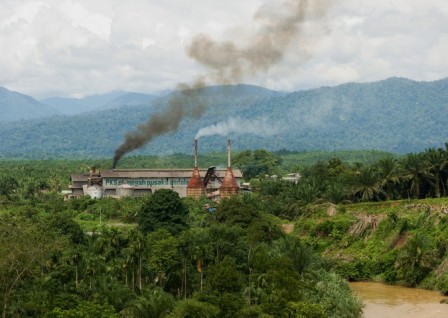
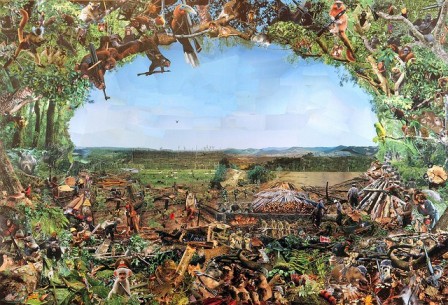
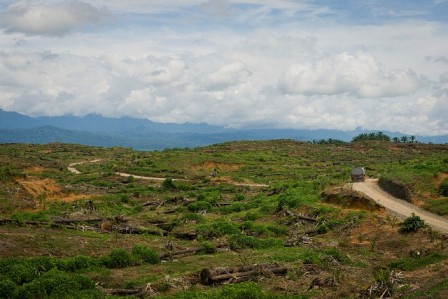
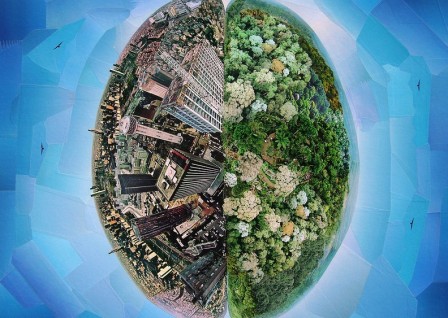
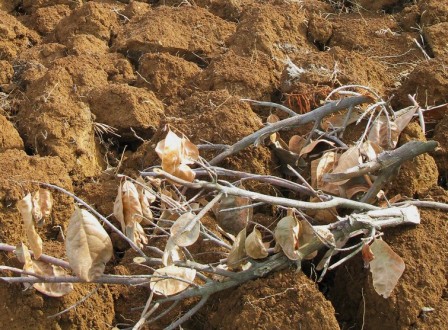
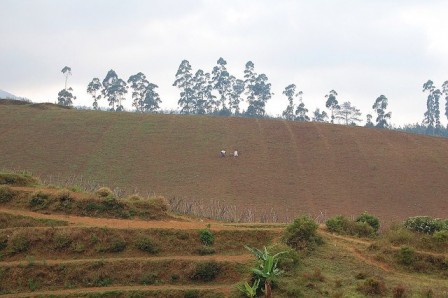











You must be logged in to post a comment Login